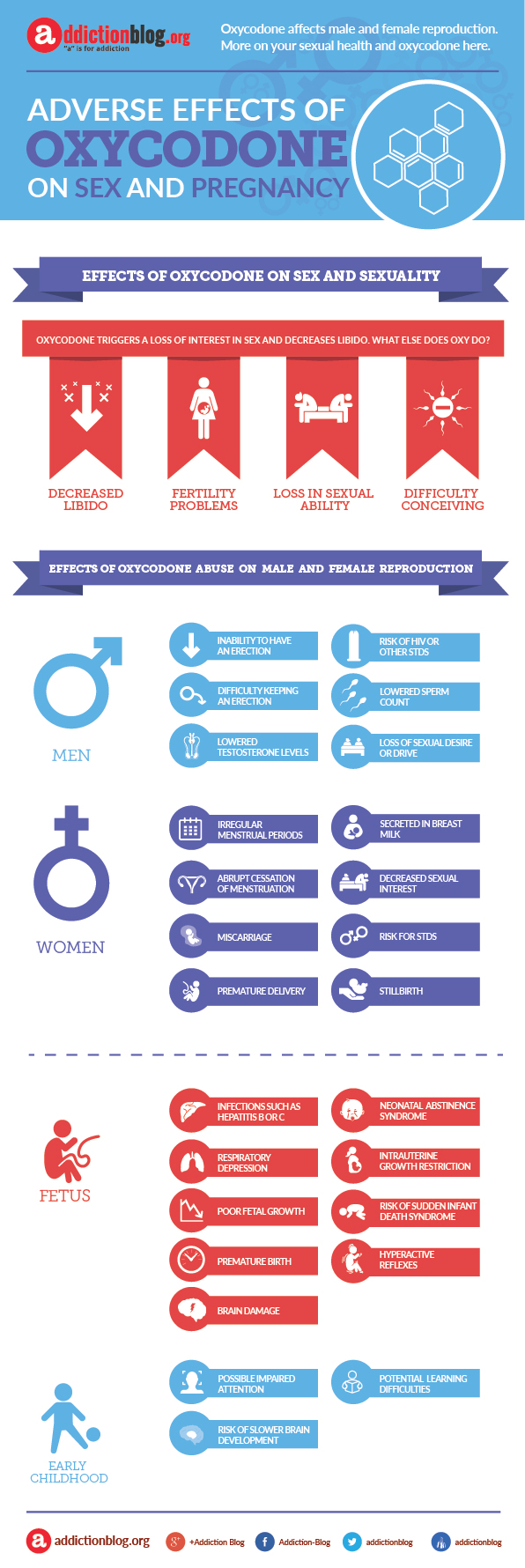Sexual and reproductive consequences from long term oxycodone use
From loss of sexual desire and interest in intimacy, to fertility implications, you should never take oxycodone for longer periods of time before you discuss these possible side effects with your doctor. “Long-term use” is generally understood as more than 2-3 months of daily use. This type of dosing can result in tolerance and dependence (medically expected conditions)….but can also bring on consequences both unplanned and unwanted.
Check out our infographic above to get a more visual idea about the sex, fertility, pregnancy and fetal implications of using or abusing oxycodone. Then, join us for Q&A in the designated comments section at the end of the page. We love your questions! And we try to answer them individually in a personal and prompt manner.

Oxycodone and hormonal changes
By causing changes in human hormonal balance, oxycodone can lead to:
- cessation of regular menstrual period
- decreased libido
- difficulty having or keeping an erection
- disturbances in menstrual cycle
- testosterone depletion
- lowered sperm count
Another side effect of oxycodone abuse is the danger of getting involved in risky sexual behaviors, and getting STDs, Hepatitis B or C, HIV/AIDS.
Pregnancy and breastfeeding while on oxycodone
Oxycodone is considered to be pregnancy category C by the FDA. This means that studies on animal reproduction have shown results that suggest the drug can have adverse effect on the fetus. Although there are no adequate and well-controlled studies conducted in humans, pregnant and breastfeeding women are not recommended to use it unless the potential benefits outweigh the risks.
Here is a list of side effects from taking oxy during pregnancy you should talk about with your doctor and/or gynecologist:
- Risk of neonatal withdrawal symptoms.
- Fetal intrauterine growth restriction.
- Neonatal abstinence syndrome in the newborn baby.
- Transmission of Hepatitis B or C, HIV/AIDS.
- Possible poor growth and risk of premature birth.
Q: How about breastfeeding while on oxycodone? – Oxycodone is excreted into mother’s milk, but it’s clinical significance is not known. You should let your doctor know that you are breastfeeding your baby before they prescribe the medication.
Have more questions?
We welcome you to post your question(s) in the comments section. Feel free to share this infographic with your connections, or share your feedback below. We’ll try to get back with a personal and prompt answer to all legitimate inquiries.








Related Posts